Our live coverage of the Israel-Hamas war has moved here.
December 5, 2023 Israel-Hamas war
By Chris Lau, Ed Upright, Aditi Sangal, Adrienne Vogt, Antoinette Radford, Elise Hammond, Maureen Chowdhury and Tori B. Powell, CNN
More than 60% of homes in Gaza have been destroyed. Here's what you should know
From CNN staff
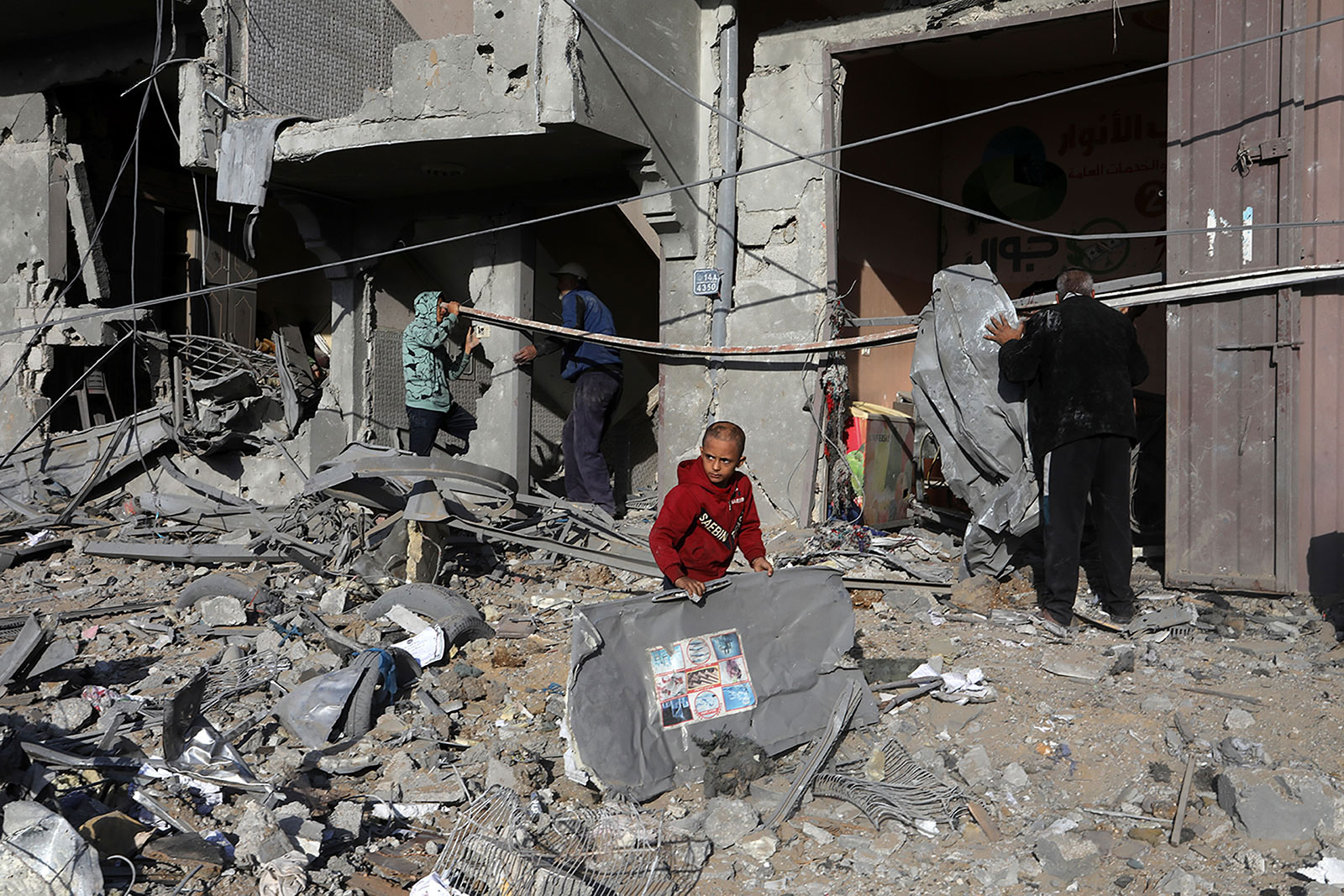
Since October 7, 61% of homes and residential units in Gaza have been destroyed, according to the Hamas government in the enclave.
Of the 305,000 affected units, 52,000 are completely destroyed and 253,000 are partially damaged, an official from the Hamas government media office said in a news conference from Gaza on Tuesday.
Here are other headlines you should know:
- Developments on the ground: The Israel Defense Forces said Tuesday that its troops are "in the heart of Khan Younis" and that troops are encircling the city located in southern Gaza. Video and witness accounts indicate there have been multiple strikes in the area of Deir al-Balah in central Gaza Tuesday as well, with many casualties being taken to the Al-Aqsa Martyrs Hospital. Also, Israeli Prime Minister Benjamin Netanyahu said Tuesday that the IDF should retain control for the disarmament of Gaza after the war, rejecting the idea that an international force could be responsible for security in the Gaza Strip. And US officials expect the current phase of Israel’s ground operation of Gaza targeting the southern end of the strip to last several weeks before Israel transitions, possibly by January, to a lower-intensity, hyper-localized strategy that narrowly targets specific Hamas militants and leaders, multiple senior administration officials tell CNN.
- Hostages: Israeli’s public broadcaster, Channel 11, obtained audio from a private meeting between former hostages and Israel’s security cabinet. In the audio, former hostages detailed the trying conditions of their captivity. Also, some Israeli hostages were given anti-anxiety medication prior to their release, an official from Israel’s health ministry told the Knesset, or parliament, on Tuesday.
- Developments out of Lebanon: Lebanon's caretaker prime minister wants to spare his country "from any major war that might occur" as the conflict between Israel and Hamas is leading to the fear of rising regional tensions. Meanwhile, a Lebanese soldier was killed and three others were wounded in an Israeli attack on Tuesday, the Lebanese army said on social media.
- Humanitarian aid and support: Fifty trucks carrying humanitarian aid entered Gaza through the Rafah crossing Tuesday, including two trucks specifically carrying fuel, according to an Egyptian official. Additionally, the US military airlifted another 36,000 pounds of critical supplies to Gazans on Tuesday, Pentagon spokesperson Brig. Gen. Pat Ryder said Tuesday. Meanwhile, power has been returning gradually to Gaza following Monday's blackout, according to PalTel, the only remaining major telecommunications operator in the strip. Also, Israel's prime minister said his country's war efforts in Gaza are supported by its humanitarian effort. Netanyahu said Israel is allowing in the "bare minimum" of fuel trucks and also is aiming to prevent disease outbreaks in the enclave that could halt the ground operation. Elsewhere, the Norwegian Refugee Council has been forced to halt nearly all aid operations in Gaza “due to the bombardment, the chaos and the panic,” said its secretary general, Jan Egeland. And Mary Robinson, former United Nations high commissioner for human rights and chair of The Elders group, has urged the US to reconsider its military aid to Israel, calling for restraint from "those who have power."
- International involvement: US President Joe Biden's administration has begun to stress publicly that the United States' efforts to shape Israel’s military operations to be more surgical and deliberate to limit civilian casualties in Gaza have been fruitful. FBI Director Christopher Wray said the bureau is working "around the clock" to pinpoint and stymie potential attacks by individuals inspired by the October 7 Hamas attacks on Israel. Additionally, US Secretary of State Antony Blinken announced a new policy on Tuesday to prevent extremist Israeli settlers responsible for violence in the West Bank from coming to the United States. And, during a trip to Egypt Tuesday, US Aid Administrator Samantha Power announced the US will provide an additional $21 million in aid to Gaza.
UN rejects idea of acceptable ratios for Gaza's civilian deaths after Israeli military's comments
From CNN’s Caitlin Hu
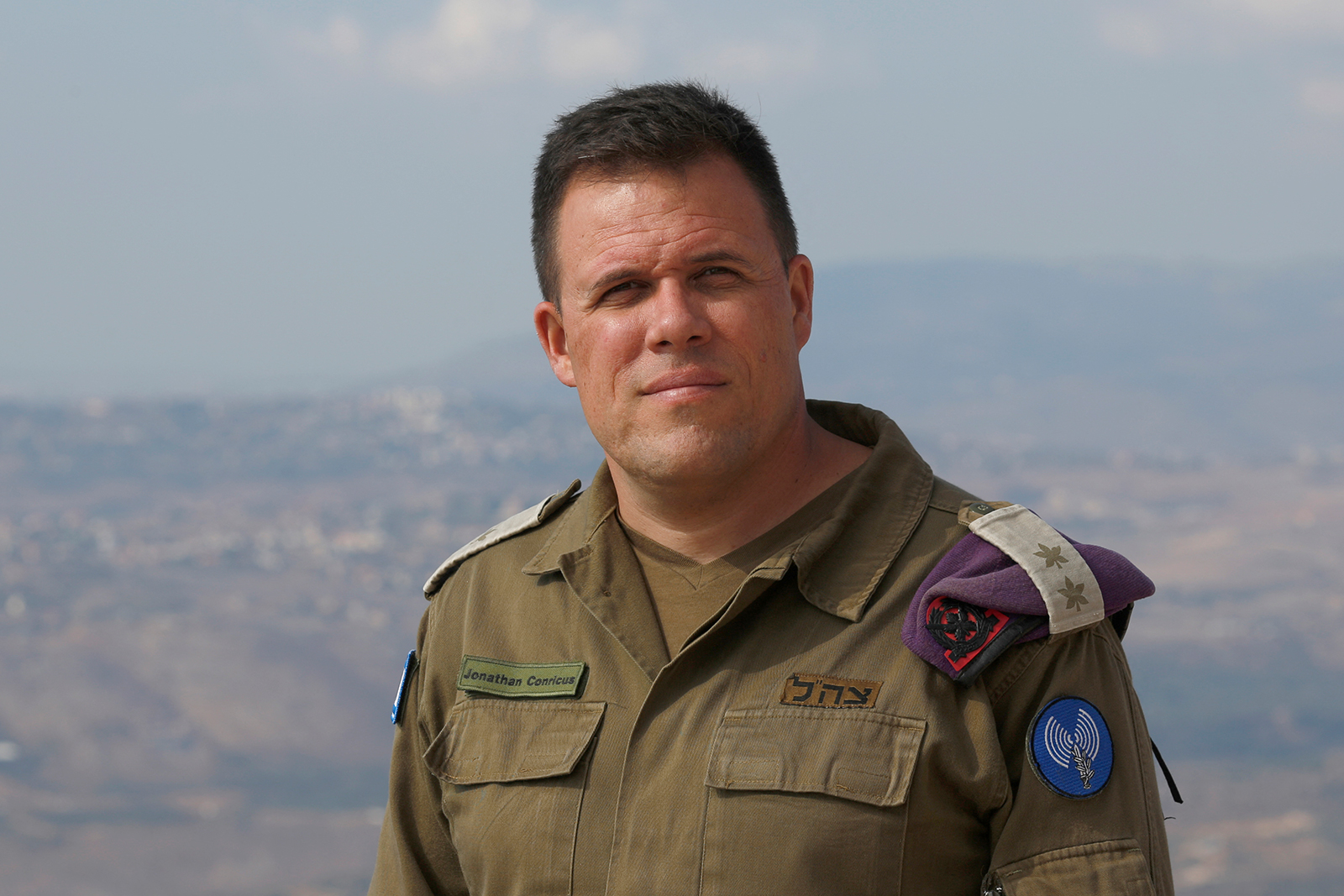
The United Nations has described the remark by an Israel Defense Forces spokesperson to evaluate civilian deaths in Gaza in “ratios” as “tasteless".
On Monday, Jonathan Conricus, IDF spokesperson, told CNN that a ratio of two Palestinian civilians killed in Gaza for every Hamas militant is a “tremendously positive ratio” given the challenges of urban combat.
“We're not in the business of establishing those kinds of ratios, which I think are tasteless, to say the least," said Stéphane Dujarric, spokesperson for UN Secretary-General Antonio Guterres.
The UN’s focus is on avoiding any civilian deaths, Dujarric said, during an exchange at his daily press briefing on Tuesday — though he acknowledged this has not been successful in Gaza.
Almost 16,000 people have been killed in Gaza since October 7, according to figures compiled by the Hamas-controlled health ministry in Gaza
Israel's assessment on civilian-Hamas militant fatality ratio is "dead wrong," US Rep. Seth Moulton says
From CNN's Mitchell McCluskey
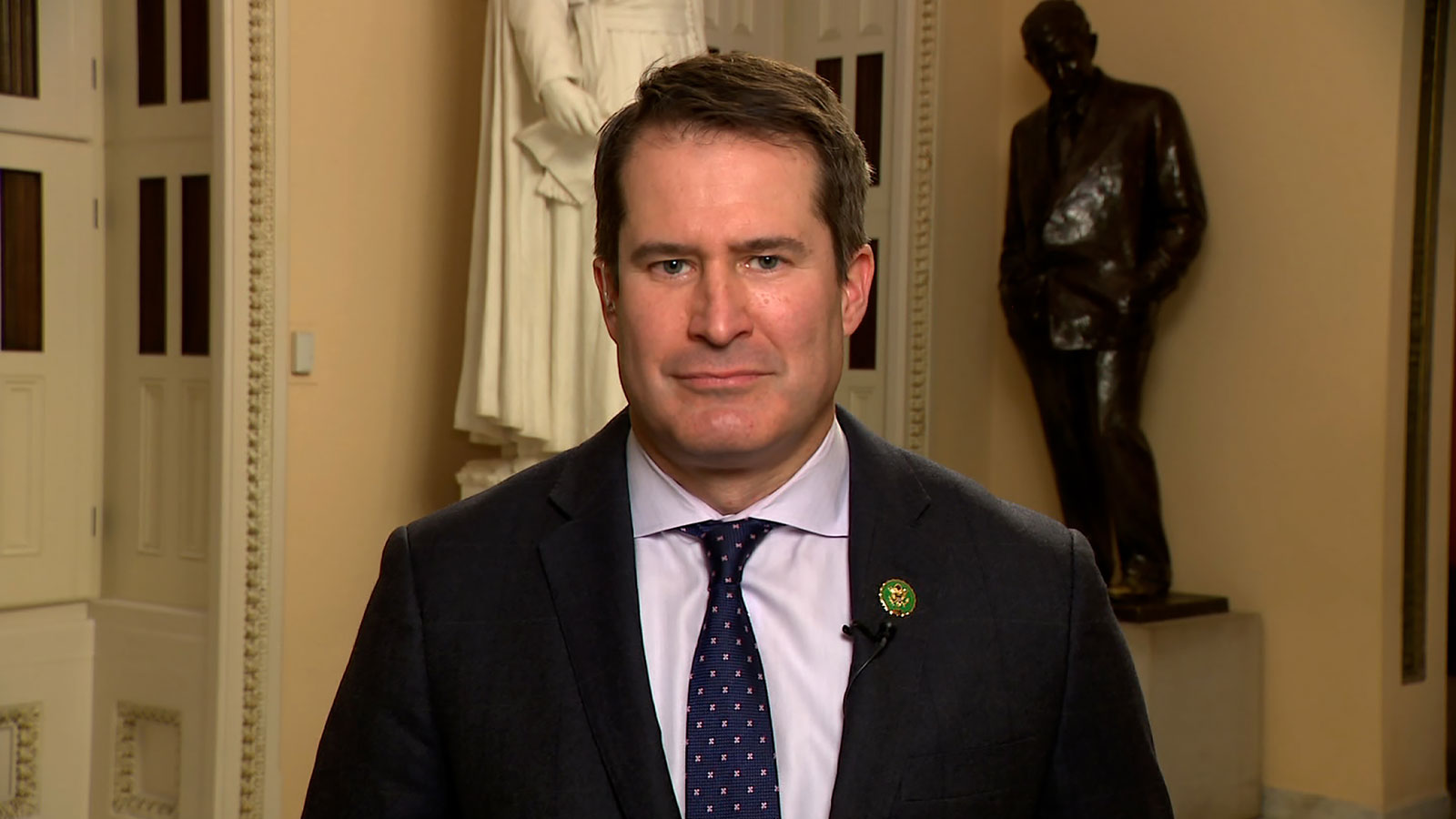
US Rep. Seth Moulton told CNN's Erin Burnett he disagrees with Israel Defense Forces (IDF) spokesperson Jonathan Conricus' assessment that two civilians killed for every Hamas militant is a "tremendously positive" ratio.
"No I think it's dead wrong," Moulton said.
Moulton, a member of the House Armed Services Committee who served in Iraq, cited a study commissioned by retired Army Gen. Stanley McChrystal, which said for every civilian killed, about 10 terrorists are recruited.
"By that number, Israel so far killed about 5,000 Hamas terrorists but in the process they've recruited about 100,000 new adherents. And this is bad news for Israel," Moutlon said.
The congressman added that in a poll conducted just before October 7, six out of 10 Gaza residents indicated that they did not support Hamas.
"Israel was actually going into a favorable situation where most of the Palestinians were against Hamas as well. The concern is they've actually turned most of the Palestinians against Israel," Moulton said.
Chair of The Elders group urges US to reconsider its military assistance to Israel
From CNN’s Niamh Kennedy and the Isa Soares Tonight team in London
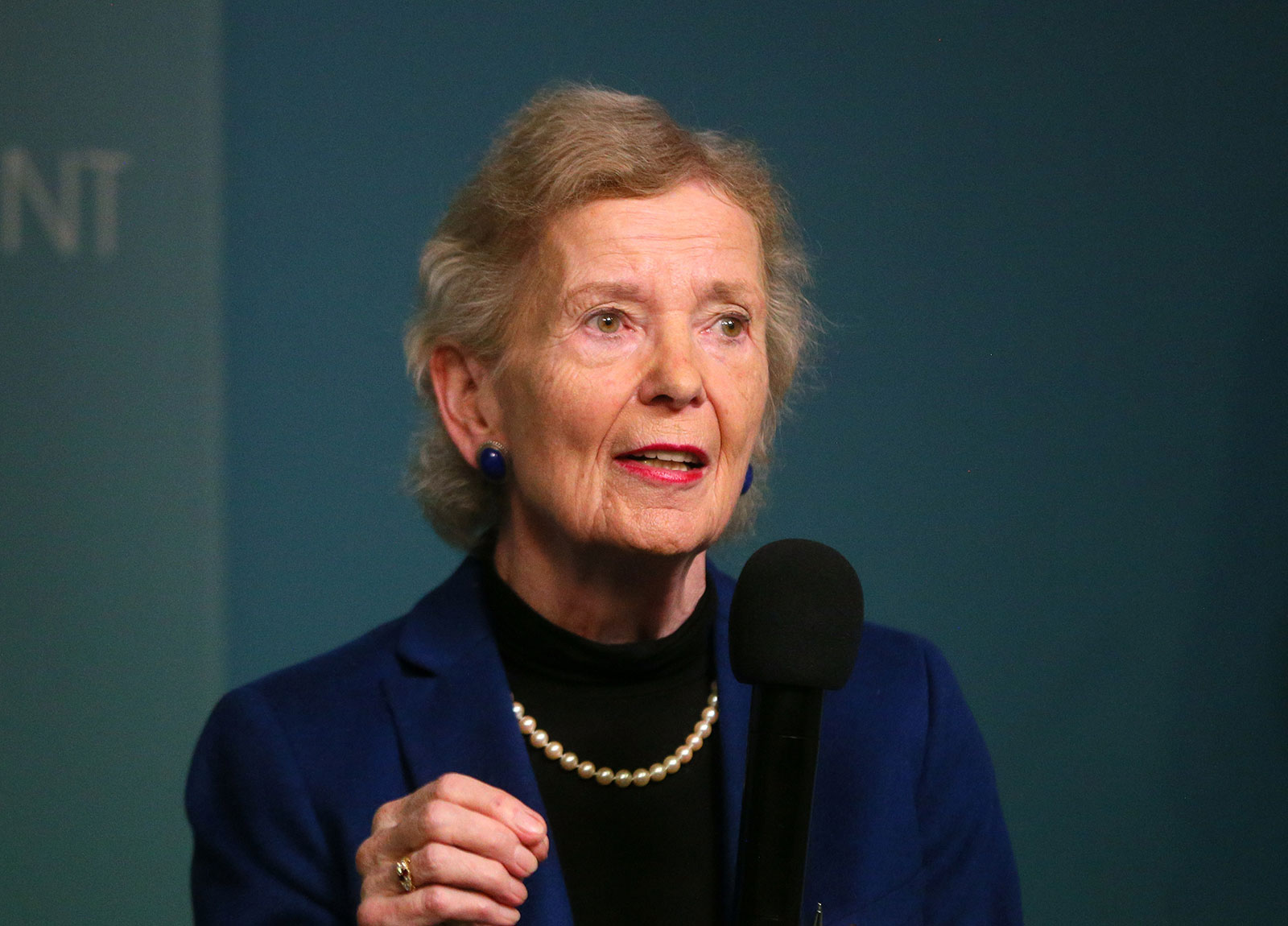
Mary Robinson, former United Nations high commissioner for human rights and chair of The Elders group, has urged the US to reconsider its military aid to Israel, calling for restraint from "those who have power."
Robinson spoke to CNN’s Isa Soares in the wake of a statement released by The Elders, describing Israel’s response to the October 7 attacks as “disproportionate” and the “level of inhumanity” it is carrying out in Gaza as “intolerable.”
The Elders, founded by Nelson Mandela, is a grouping of mostly former world leaders “working for peace, justice, human rights and a sustainable planet," according to the group's website.
“We as Elders are asking that countries that provide military aid, notably the United States to Israel, now have to urgently review military assistance and put in place conditions for any future provision,” Robinson, who is also the former president of Ireland, told CNN.
“I think it's really necessary. I'll tell you why — if this doesn't happen, then the United States owns the problem. And that is not good for the United States, that the United States would be identified with so much killing,” Robinson said.
Since 2016, the US has provided $3.8 billion annually in military assistance to Israel as part of a 10-year Memorandum of Understanding between the two countries.
Robinson highlighted that ordinary Palestinian civilians who are "getting caught up" and killed in the conflict in Gaza are “not Hamas terrorists.”
“The UN is urging, the UN High Commission here in Geneva is urging, we are all urging restraint. But words aren't enough. And those who have power to restrain must now restrain," Robinson said. "And that in particular is the United States."
Robinson urged the US to exercise this restraint by publicly voicing its disapproval that its “military arsenal is being used this way” in Gaza. “It hasn't said that explicitly. It should," Robinson added.
This post has been updated with additional information.
Israel revoked visa of UN humanitarian coordinator, minister of foreign affairs says
From CNN's Mitchell McCluskey
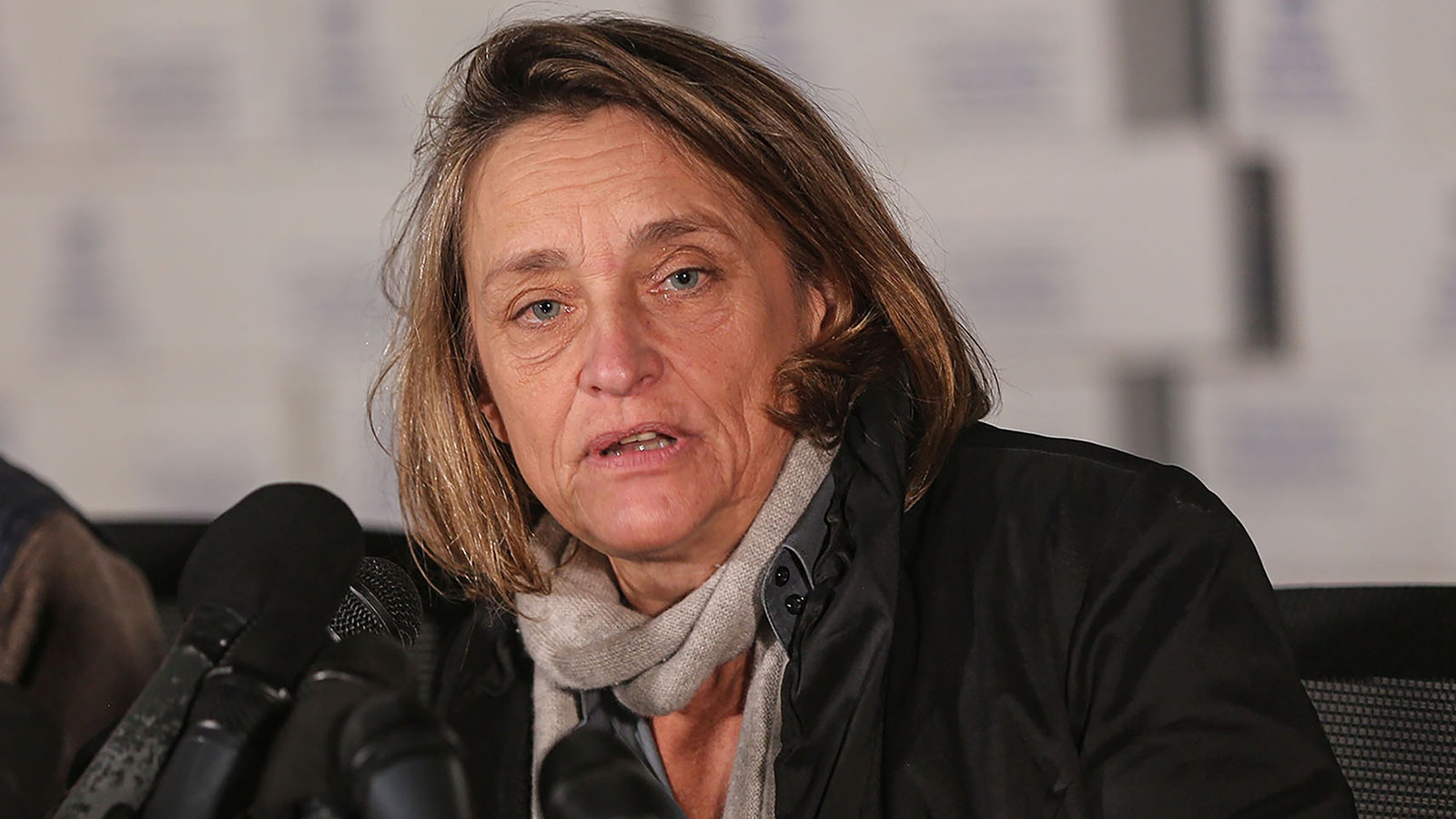
Israel has revoked the visa of the United Nations humanitarian coordinator due to the "bias of the UN," according to the Israeli minister of foreign affairs.
“We will no longer be silent in the face of the bias of the UN,” Israeli Foreign Minister Eli Cohen said in a post on X, the platform formerly known as Twitter.
Cohen said Lynn Hastings, who is the deputy special coordinator for the Middle East peace process and the UN resident coordinator for the Occupied Palestinian Territory, failed to speak out against Hamas for the acts committed during its October 7 attack.
“Someone who did not condemn Hamas for the brutal massacre of 1,200 Israelis, for the kidnapping of babies and the elderly and for the horrific acts of abuse and rape, and for using the residents of Gaza as human shields, but instead condemns Israel, a democratic country that protects its citizens, cannot serve in the UN and cannot enter Israel,” Cohen said.
Stephane Dujarric, spokesperson for the UN secretary general, said Hasting had her visa revoked last week. Still, Dujarric said the UN secretary general has “full confidence” in Hastings.
“I can only reiterate the Secretary-General's full confidence in Ms. Hastings, the way she's conducted herself, and the way she's done her work,” Dujarric said.
IDF concedes it struck Lebanese soldiers while targeting Hezbollah in "self defense"
From CNN's Mitchell McCluskey
The Israel Defense Forces admitted Tuesday that it struck Lebanese soldiers while acting in "self defense" against Hezbollah, the IDF said on social media.
"The Lebanese Armed Forces were not the target of the strike," the IDF statement read. "The IDF expresses regret over the incident."
The IDF claimed it "operated in self defense" against what they said was an imminent threat coming from Lebanon. The threat came from near the southern Lebanese village of Odaisseh in the Marjayoun district, where the IDF says a Hezbollah launch area and observation point exists.
According to the Lebanese Armed Forces, one soldier was killed and three more were injured.
The IDF said they were notified after the strike that soldiers from the Lebanese Armed Forces had been harmed.
The IDF added that the incident is under review.
It is believed to be the first fatality of the Lebanese Armed Forces since the escalation of the conflict this year.
Netanyahu says war efforts are supported by humanitarian efforts — but aid groups say it's not enough
From CNN's Lauren Kent and journalist Tamar Michaelis in Tel Aviv
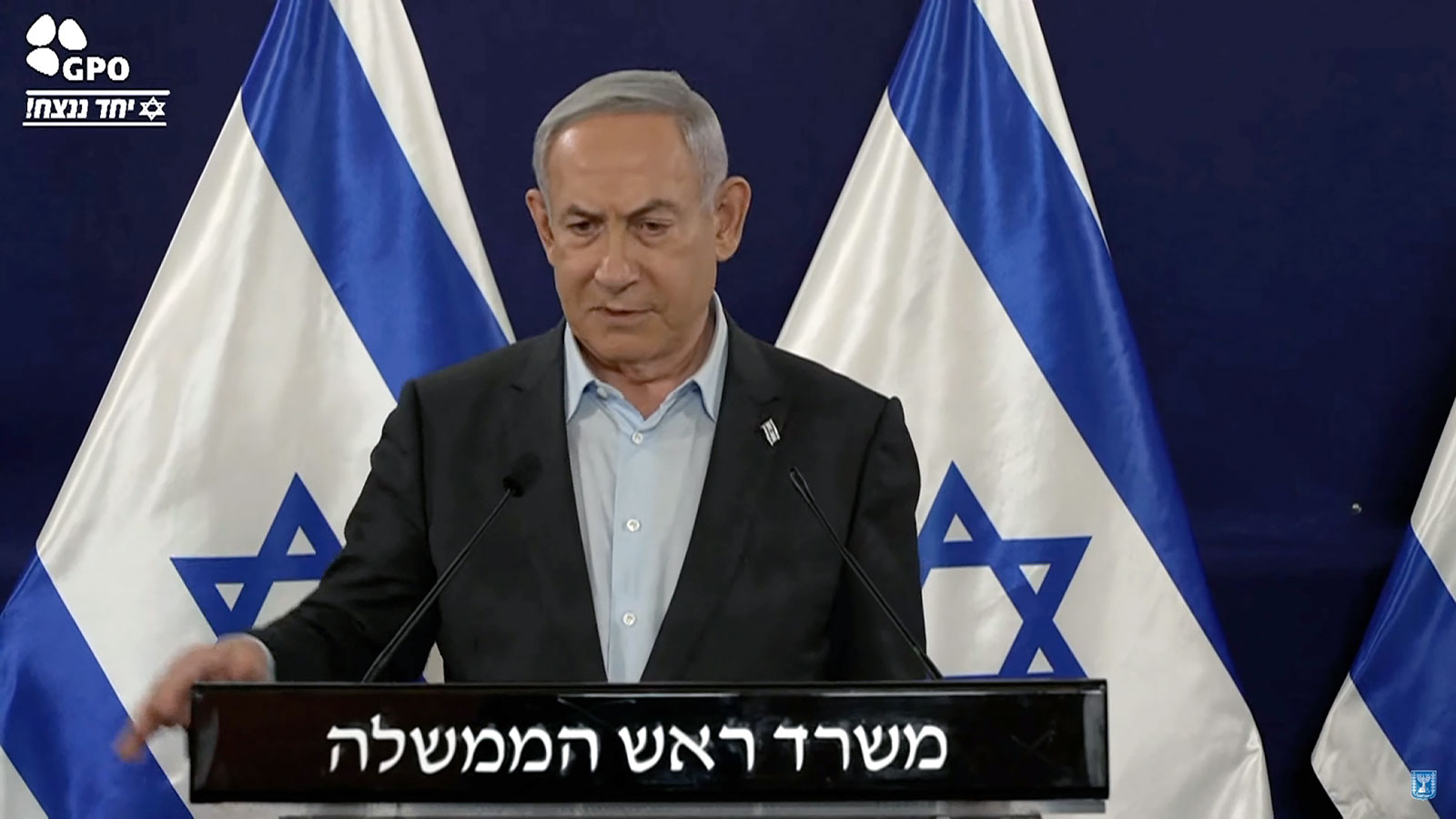
Israel's prime minister said his country's war efforts in Gaza are supported by its humanitarian effort. Benjamin Netanyahu said Israel is allowing in the "bare minimum" of fuel trucks and also is aiming to prevent disease outbreaks in the enclave that could halt the ground operation.
Answering a question about Israel potentially losing leverage against Hamas if it allows more humanitarian aid into Gaza, Netanyahu said: "The war efforts are supported by the humanitarian effort … this is because we follow laws of war because we know that if there would be a collapse — diseases, pandemics, and groundwater infections — it will stop the fighting."
Israeli Defense Minister Yoav Gallant said Tuesday that Israel has "the right to demand certain things" concerning humanitarian aid, including allowing the Red Cross to visit Israeli hostages who remain in Gaza "or at least allow the transfer of some related elements such as medicines" to the hostages.
"Therefore, we see no contradiction between the war effort … and the humanitarian aid that’s an essential part of it," Netanyahu said. "We allowed four fuel trucks (into Gaza) daily — it’s the bare minimum. Now it stands at two. These are dynamic decisions that depend on the humanitarian situation."
Meanwhile, international aid organizations have argued that the amount of aid reaching Gaza is insufficient.
Lynn Hastings, United Nations humanitarian coordinator, said on Monday that a “more hellish scenario is about to unfold” if more aid is not allowed to enter Gaza.
Mirjana Spoljaric Egger, the president of the International Committee of the Red Cross (ICRC), said during a visit to Gaza on Monday that “an unimpeded and regular flow of aid must be allowed to enter Gaza."
Current phase of Israel's ground operation of Gaza could end by January, US officials say
From CNN's Natasha Bertrand, MJ Lee, Alex Marquardt and Oren Liebermann
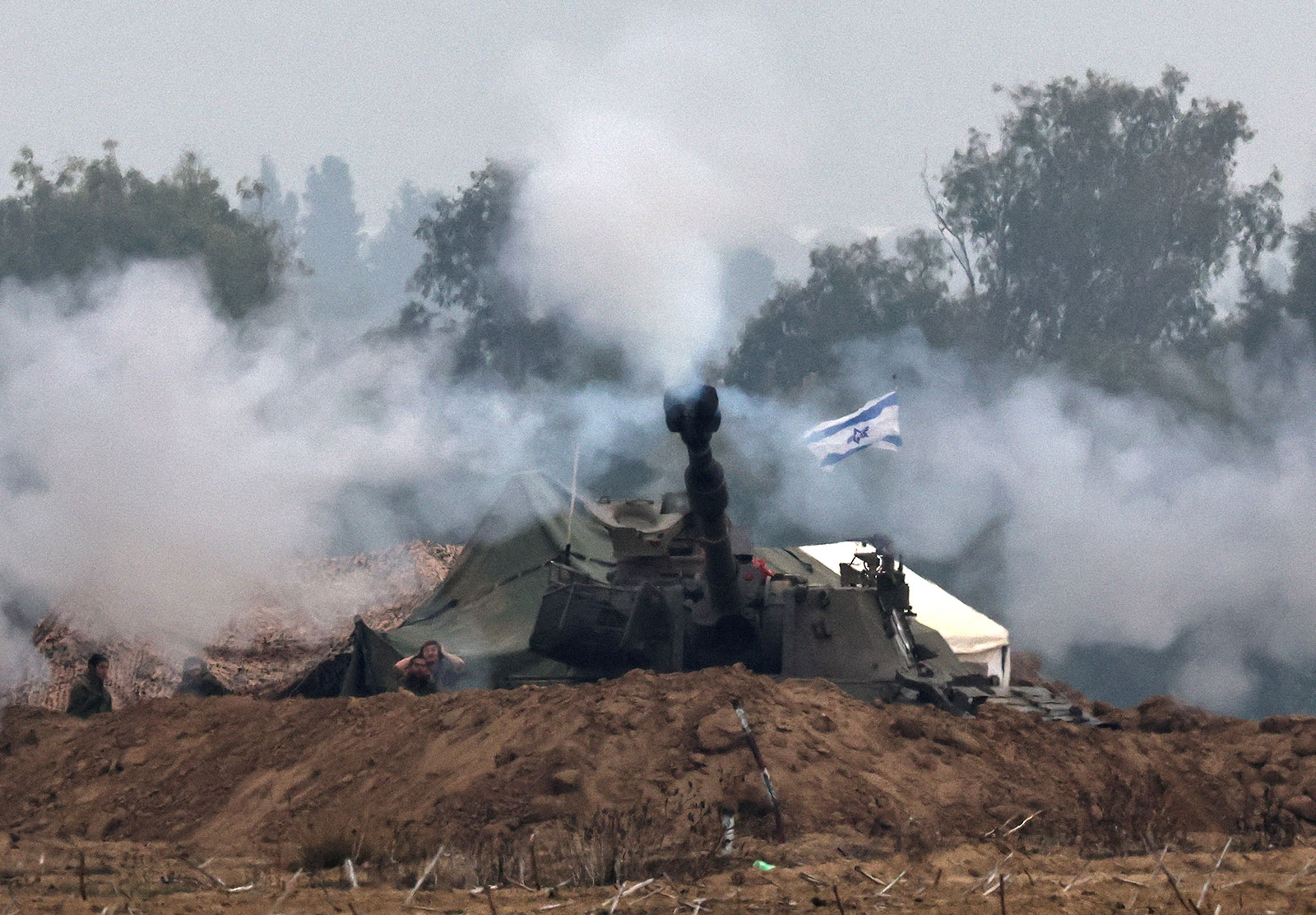
US officials expect the current phase of Israel’s ground operation of Gaza targeting the southern end of the strip to last several weeks before Israel transitions, possibly by January, to a lower-intensity, hyper-localized strategy that narrowly targets specific Hamas militants and leaders, multiple senior administration officials tell CNN.
But as the war enters this new ground, the White House is deeply concerned about how Israel’s operations will unfold over the next several weeks, a senior US administration official said.
The US has warned Israel firmly in “hard” and “direct” conversations, they said, that the Israeli Defense Forces (IDF) cannot replicate the kind of devastating tactics it used in the north and must do more to limit civilian casualties.
The US has conveyed to Israel that as global opinion has increasingly turned against its ground operation, which has killed thousands of civilians, the amount of time Israel has to continue the operation in its current form and still maintain meaningful international support is quickly waning.
In perhaps the most direct public warning to date, Defense Secretary Lloyd Austin admonished Israel that it can “only win in urban warfare by protecting civilians.”
Speaking at the Reagan National Defense Forum over the weekend, Austin said US support for Israel is “not negotiable,” but he said Israel risks replacing a “tactical victory with a strategic defeat” if it did not do more to prevent civilian deaths.
Devastating death toll: Almost 16,000 Palestinians have been killed since Israel began its campaign in October, following Hamas’ terror attack on Israel on October 7, according to the Hamas-run Gaza Ministry of Health. Israel believes it has killed “several thousand” Hamas militants, an Israeli official said.
Though senior Biden administration officials have publicly called on Israel to do more to minimize civilian deaths, they have been careful to avoid directly admonishing any of Israel’s tactics, believing officials believe it is more effective to quietly counsel Israel behind the scenes rather than loudly shame them.
The senior administration official told CNN that they did not feel comfortable using the word “receptive” to capture Israel’s response so far to the administration’s military advice —contrary to some public statements from senior-most members of the administration.
Both in public and in private, Israeli officials maintain that part of their end goal is to weaken Hamas to such an extent that the group can never repeat the attack that it unleashed on Israel on October 7.
That goal, one senior US official told CNN, is unlikely to be achieved by the end of the calendar year, and Israel is expected to continue pursuing that objective in the next phase of the conflict that US officials see as a “longer-term campaign.”
Read more about the US view of Israel's ground operation of Gaza.